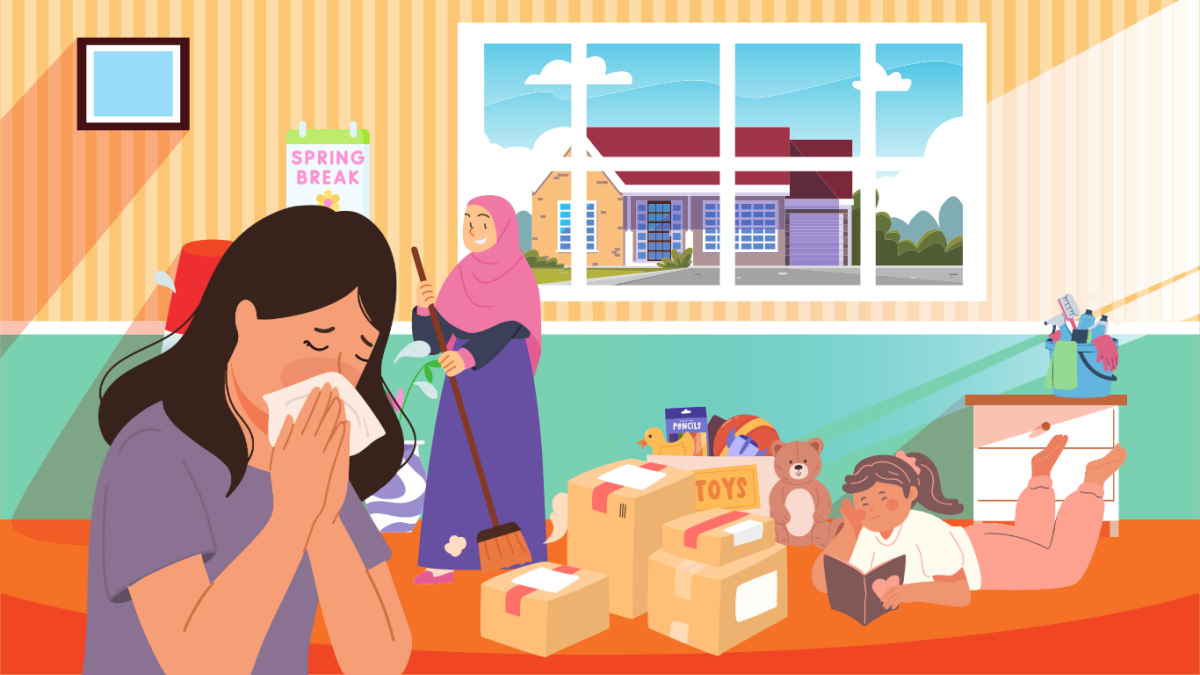Half of the Spring semester has been completed, and graduation is inching closer and closer for the more-than-ready Seniors of Sparkman High School; however, seniors find themselves slowing down rather than speeding up regarding their studies. A wave of senioritis has hit Sparkman seniors in the homestretch of their high school careers.
Senioritis is a relatively new term defined as a “disease” that affects the mental health and motivation of Seniors in a negative way. The term was first used by The Chicago Alumni Magazine in 1907, jump-starting the popularity of the term. The word would then be used in the Tipton Daily Tribune, Coming of Age in New Jersey by M. Mofatt and the New York Times. This outburst in popularity caused the term to be added to the Oxford English Dictionary in 2012. Even though Senioritis was added to the dictionary, it is still considered a slang term used humorously.
“Senioritis isn’t a clinical term, but rather a colloquial one that is used to describe the decreased motivation that seniors can experience as they approach the end of their studies,” the Grand Canyon University said.
Senioritis has plagued seniors all over the world. It usually occurs in the second semester of the senior year and its symptoms may vary for each person. According to Southern New Hampshire University, the most common symptoms are a drop in grades, not completing assignments, procrastination and a loss of interest in studies. Senioritis is a common struggle among students.
“Everyone has their own limit regarding how much energy and effort they can put into an endeavor. Students often reach their limits during senior year in what is known as senioritis,” the University of the People said.
Daniel Berryhill is one of the many seniors at Sparkman who suffers from Senioritis. Instead of the usual drop in grades, Senioritis causes him to feel tired constantly, resulting in him falling asleep in class. To combat this, he eats breakfast every morning and listens to music to keep him awake. Senioritis looks different for everyone; for Berryhill, sleep deprivation is his Achilles’ heel.
“My advice to people who have Senioritis is just to lock in,” Berryhill said. “High school doesn’t last forever.”
Katelynn Finnegan is a teacher at Sparkman who has taught seniors for years and is aware of the signs and symptoms of this “disease.” The most common signs she has noticed is laziness, napping, and lack of care for their assignments. When one of her students begins to develop Senioritis, she tries to motivate them, encourage them, and educate them that college will be the same way. Overall, Finnegan tries to inspire her seniors to finish strong.
“Keep working hard towards your goals because life continues even when you feel demotivated,” Finnegan said.
Senioritis might seem inevitable, but there are ways to overcome it. There are four key steps to overcoming senioritis: organization, setting small goals to work towards, breaks, and looking toward the future.
Step one is staying organized. Seniors can become overwhelmed with all the assignments left to do, but staying organized can help you to stay on track. Mobile apps like Egenda, My Study Life and iHomework track your assignments and their due dates. These apps will decrease procrastination and missed assignments. A virtual or in-person calendar can track assignments as well. By marking due dates on the calendar, you can visualize how much time is left to complete homework.
Step two is to set several small goals to achieve throughout the semester. Finishing the year can seem like a big task and become overwhelming. Splitting it into chunks can make the task less daunting. After all, surviving until spring break is a lot easier than surviving until graduation. You could also set each test as a checkpoint or a step closer to graduation. Celebrating each passed test can keep up morale.
Step three is to schedule breaks. Burnout is more likely to occur if you don’t take breaks. They are important for your mental health and can refill your motivation to finish. Make sure to set aside time for friends, family and hobbies.
Finally, step four is to get excited about the future. It is easy to get swallowed up in everything that has to be done that day but don’t forget about what you get to do in the future. This demotivation is like a dark tunnel that seems to go on forever, but there is light on the other side.
“…remember that senioritis is just a phase – it doesn’t have to ruin your entire senior year. So don’t let it stop you from enjoying the present moment,” Johnson and Wales University said.
Senioritis is a disease that most students will struggle with at some point in their senior year. For some, it can uproot their entire semester or bomb their grades, but that doesn’t have to be the case for you. Since this is a common experience, many people are already going through it or have overcome it. In other words, help and advice are available for those who need it.
“The best thing to do when you feel senioritis or lack motivation is to keep the end in mind,” Counselor Jessica Kalathas said, “Right now, we only have 8 more weeks of the school year; that’s 40 days. Only 40 days are standing between you and something that you’ve been working towards for 13 years.”








